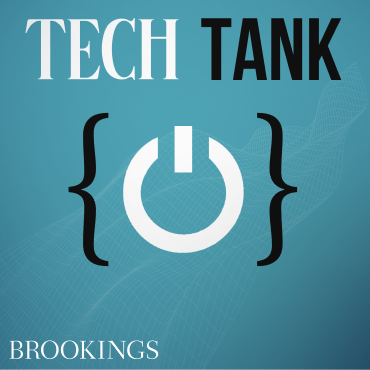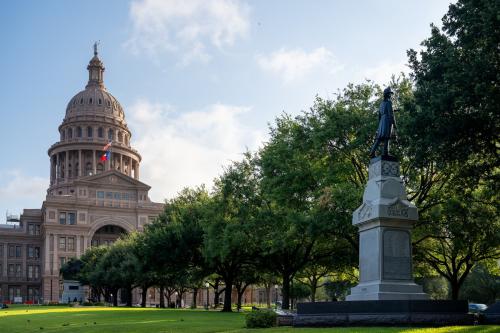TechTank, a biweekly podcast from the Center for Technology Innovation at Brookings, explores today’s most consequential technology issues. Moderators Nicol Turner Lee and Darrell West speak with experts and policymakers to share data, ideas, and policy solutions that address the challenges of our digital world.
Concerns about children’s online safety are mounting. The national mental health crisis and the Surgeon General’s warning about social media have led policymakers and parents to worry about the risks that children face online. Commercial age verification systems have tried to answer this question with different methods. Some systems identify the age of Internet users by checking government-issued IDs or transactional records, such as employment or educational documents. Others infer a user’s age based on past social media activity or AI-driven facial recognition. While no system of age verification is fully “childproof,” and each has its own trade-offs, many are already being used at scale. Louisiana passed a law requiring websites with adult content to use commercial age verification systems to confirm whether a user is at least 18 years old. Texas, Virginia, Arkansas, and Utah have all passed similar bills, and states like California and Arizona are following closely behind. These age verification mandates have prompted not only new concerns about privacy and equity, but also a new wave of litigation. NetChoice, a tech coalition representing giants like Google, Meta, and TikTok, has sued the state of Arkansas over the constitutionality of its age verification law, which puts minors’ data at risk of being breached. As this lawsuit and other legal challenges make clear, state and federal actors will need to balance competing priorities in order to protect children online. In this episode of the TechTank podcast, co-host Darrell M. West explores potential paths forward in the safety of kids online with Matt Perault, a professor at UNC’s School of Information and Library Science, and Scott Brennen, the head of online expression policy at UNC’s Center on Technology Policy. As co-authors of the report “Keeping Kids Safe Online: How Should Policymakers Approach Age Verification?”, both scholars will discuss current methods for age verification, consider the key trade-offs for each, and share informed recommendations for policymakers. Listen to the episode and more from the TechTank podcast on Apple, Spotify, or Acast.
The Brookings Institution is committed to quality, independence, and impact.
We are supported by a diverse array of funders. In line with our values and policies, each Brookings publication represents the sole views of its author(s).









Commentary
PodcastWays to protect children online | The TechTank Podcast
Listen on
July 17, 2023